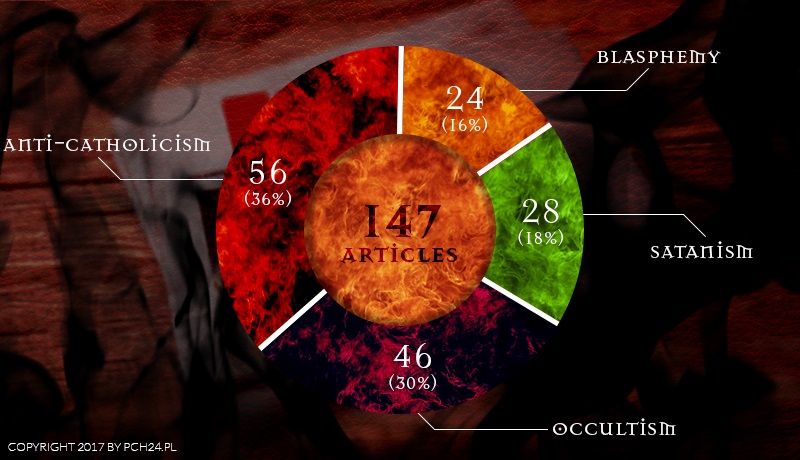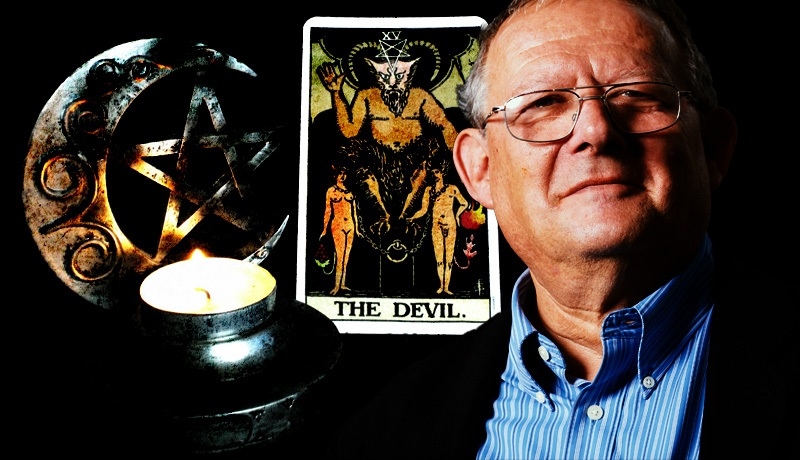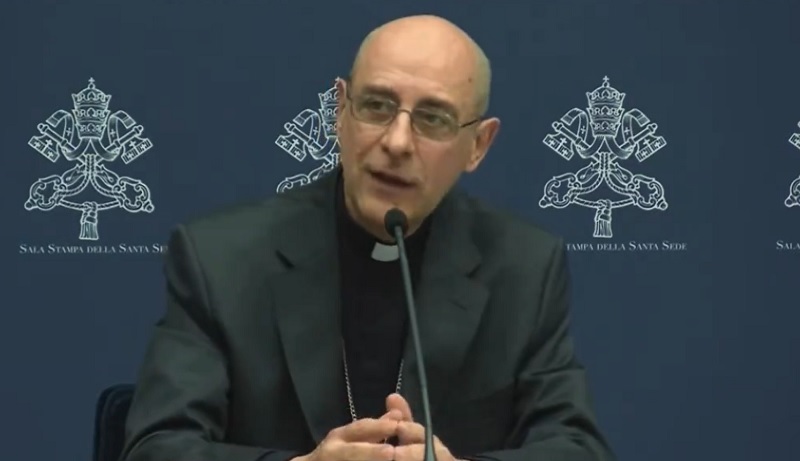There is a group of people of moderate views who still consider Gazeta Wyborcza a reliable source of information and independent opinions. Many of them are Catholics although not necessarily from the conservative wing of the Church. But the truth is brutal: the medium from Czerska Street is a promoter of anti-Catholic content: blasphemous and at times even Satanist. An analysis of the 2016 annual volume of GW shows that they are presented quite systematically although with various intensity.
The author of the report presented here analyzed the content of Gazeta Wyborcza and all its supplements from 2016. He has created a list of texts considered antireligious, including following four “classifications”:
Wesprzyj nas już teraz!
Satanism or its promotion which means Satanist content expressed by an author of a text from GW or any promotion of such ideas or people professing Satanism;
blasphemy: blasphemous content expressed by an author or promotion of such content;
anti-Catholicism: content hostile to the Church and Christianity expressed by an author or any promotion of such ideas;
occultism or any promotion of occultism: occultist content or related to it expressed by an author or any promotion of such. Not only occultism sensu stricto was classified as occultism but also paganism, magic et cetera. The promotion of heavy metal concerts with Satanist bands, the promotion of books about Harry Potter; the promotion of various spiritually dangerous forms of celebrating “Halloween” et cetera – are included in this section.
While the author of this report exercised due diligence it is worth noticing that creating this document meant (at least in some cases) the necessity of making a decision about putting some articles on the list or excluding them from it. In some cases the decision seemed almost obvious, but in some other ones there were doubts. It is impossible to exclude subjectivism or a possibility of an error. Nevertheless it seems to reflect the dominant trend quite well.
147 texts have been put on the list all together. 152 classifications have been given (in particular cases a text might be given more than one classification: e.g. anti-Catholicism and blasphemy).
Such “classifications” in numbers look as follows:
Blasphemy – 24
Satanism – 28
Occultism – 46
Anti-Catholicism – 56.

In terms of months the number of texts put on the anti-religious list, presented in a graphic form, looks as follow:

The increase of anti-Catholic texts is therefore particularly manifest in April and in October. Out of 147 articles put on the list, 25 were published exactly in October – the month of the Holy Rosary. It means up to 17 percent of all the classified content.
There might be three reasons why there was such an increase of the anti-religious content exactly in that month. The first one is Halloween (October 31st), the second one “Black Marches” that took place on October 3rd, 2016, the third one the premiere of a new book about Harry Potter on October 22nd.
The demon of egalitarianism
An article by Magdalena Środa, titled “Demon in Warsaw” (“Demon w Warszawie”, Gazeta Wyborcza, no. 251, October 26, 2016, Opinie, p. 17) is particularly worth noticing. It referred to a press conference on Litewska Street in Warsaw, where journalists’ questions were answered by… a woman personifying a demon. Where did she come from? “The Warsaw demon was attired in black – nobody knows if it was because every demon wears such colors or because that demon came from women’s (and men’s) strike concerning egalitarian rights which had just finished nearby” – Magdalena Środa wrote.
The text most emphatically shows a connection between demonism and revolution and egalitarianism. As the author of the text says: “the demon is egalitarian, he likes all kinds of disturbances of the order established on earth by the authority (either divine or human). We may discover from many statements of hierarchs, who some time ago condemned democratic freedom and equality and today condemn feminism and homosexualism, quoting as an argument the eternal, natural, divine, hierarchical order, which rebels want to disturb. They cited it also while burning Giordano Bruno at the stake”.
A connection between the feminists’ content and egalitarian ideas might be seen here. Some decades ago this connection was noticed by a Brazilian Catholic thinker, Professor Plinio Correa de Oliveira. He pointed out that Revolution is linked with egalitarianism which destroys the hierarchical order reflecting God’s perfection. In his opus magnum Revolution and Counter-Revolution the Brazilian author described the most radical egalitarianism as hatred for God. After all according to St. Thomas Aquinas the inequality and diversity among creatures reflect the perfection of the Creator. A monotonous, uniform universe wouldn’t be able to mirror the perfection of God. Therefore an attempt to eliminate this diversity means destroying this resemblance to the Creator. The same egalitarianism is presented both by Magdalena Środa and by radical feminists taking part in the “Black March”.
Demonism and the March of Women – other articles
Magdalena Środa’s article is not the only one in Gazeta Wyborcza which suggests the connection between the “Black March” and Satanism or at least anti-Christianity. An article by Beata Bialik, titled “The March of Secularism came to Women’s rescue” (“Marsz Świeckości poszedł na ratunek kobietom”, Strony Lokalne Kraków, no. 231, October 3, 2016, Gazeta Kraków, p. 2), should be mentioned in this context. Of course secularism is understood in an extremely ideologized way in the context of the march. After all the notion of secularism – as a French philosopher Rémi Brague points out in his book Europe. The Roman Way (Europe, la voie romaine) – preserves its sense only in the context of existence of the Church sphere. Profanum exists inseparably from sacrum, etymologically this word means something that is in a temple courtyard (pro-fanum). It means something which is not holy, but it is not in opposition to holiness and religion. But the organizers and part of the participants of the “March of Secularism” simply understood secularism as anti-Christianity.
„We are not afraid of the devil and we will overcome superstitions – the participants of Saturday’s March of Secularism chanted. This year’s atheists and agnostics’ picket took place under the slogan Secularism to Women’s Rescue.” – we can read in the first sentences of the text published in Gazeta Wyborcza. It’s hard to find a critical commentary to this type of declarations.
Grażyna Juszczyk, a teacher of mathematics from a school in Krapkowice, was one of the participants of the above-mentioned March. She became a public person after willfully removing a cross from the teachers’ room. In her opinion Poland is becoming a confessional state. Also Jan Hartman, well-known for his anti-Christian views, took part in the manifestation.
This wasn’t any problem for Gazeta Wyborcza, either. The text maintains an appearance of a purely informative one. But there is no word of criticism of the March organizers. Moreover the newspaper attempts to prejudice its readers in favor of the event by its title: “The March of Secularism came to Women’s rescue”. So does it mean that secularism understood only in an ideological (anti-Christian) way is able to “rescue women”? Is it so that Christianity constitutes the only evil they should be rescued from? That’s what kind of conclusions come to mind after uncritical reading of the article from GW.
Describing this connection between feminism and religious practices contrary to Christianity it is worth mentioning sociologist Urszula Szczepanowska’s words from an interview with GW (“Kto cię wyleczy, jeśli nie szeptucha” /”Who will cure you if not a shaman-woman”/ – an interview by Aleksander Dobrzyński, Gazeta Wyborcza, no. 224, September 24, 2016, Magazine – Życie i styl, p. 36). This interview (from September, so not connected with the March) was about shaman-women who use magic for healing purposes. The woman interviewed by GW mentioned a sympathetic attitude of feminists towards those discredited witches. As she said: “once Kazimiera Szczuka was speaking to Maria Janion who in a humorous way commented the way a witch (Polish: “wiedźma”, so the one who knows) is shown in our culture. While an old man has a position of a wise man, an old woman, although she has knowledge and is able to heal, will never be anyone else apart from a toothless, gaunt, skinny, dirty, old woman, with an ugly, rheumy-eyed face, who became hunted while the medical profession started developing.”
The connection between feminism (at least a part of it) with anti-Christianity isn’t a phenomenon restricted to “Black Marches”. The fact that out of all the antireligious articles put on the list 14 were published in “Wysokie Obcasy”, a feminist addition to GW, gives a certain idea about it. The connection between feminism and Satanism or anti-Christianity is a problem worth further studies.
Then Paweł Droździak, “a psychologist and psychotherapist”, in an interview with Krystyna Romanowska, uses the “Black March” to attack the Church (“Dlaczego parasolki nie krzyczą pod Kościołem” /”Why don’t umbrellas shout in front of the church”/, Gazeta Wyborcza, no. 248, October 22, 2016, Magazyn, p. 6). “The psychologist and psychotherapist” is first properly prejudiced to the subject by the GW journalist. “But those from big cities have they hide whipped by the Church first of all” – Krystyna Romanowska states (instead of asking). Her interlocutor picks up this thread. “Catholicism represses sexuality. By the time the dispute over pregnancies began the focus had been on homosexuals. Part of this aversion stems from being in terror of voluntary submitting oneself to the dominance of another male. And a picture of unhindered pleasure is something completely unacceptable” – he says.
Moreover Paweł Droździak undertakes a task of analyzing the reasons for such determined defense of life by Catholics. In his opinion the reason is not that natural laws and the Fifth Commandment are followed. The real reasons are – as he claims – different. What are they? “The Church is interested in keeping life unborn all the time” – he says. “This is life before separation. Perfect life. Separation means problems. The convent or the priesthood are a symbiotic situation in which everything is guaranteed – you don’t have to worry about anything. The world is ordered because there are no differences, uncertainties, no rivalry. Care for the life of the unborn is a consequence of this subconscious collective fear of the disintegration of the structure which guarantees this type of existence” – he adds.
Halloween – from horror marathons to Dziady recycling
Apart from the “Black Marches” Halloween – as we have already mentioned – became an opportunity to promote anti-religious contents (at least indirectly). It is worth noticing that around this “holiday” various forms of non-Catholic pastimes are promoted: from horror marathons to “original” interpretations of Adam Mickiewicz’s Dziady (a romantic drama referring to an old Lithuanian pagan feast when peasants summoned ghosts).
An interview with Łukasz Maurycy Stanaszek – “Sad Slavic Vampires”, (“Smutne Słowiańskie Wampiry”, Gazeta Wyborcza, no. 255, October 31, 2016, Kultura, p. 11) should be mentioned in this context. The conversation seems to serve the purpose of having Halloween ingrained in our Polish culture. Emilia Dłużewska’s interlocutor says that the foreign origin of vampires is an assertion which is not necessarily substantiated. After all “we might as well say that the origin of vampirism was here. The origin of the word vampire (Polish: wampir) itself is Slavic, then it got into other languages.” Then the interlocutor of Gazeta Wyborcza admits that after all the origin of Halloween celebrations is in the Celtic tradition.
There is also an attempt to link vampirism with Christianity. According Mr. Stanaszek conversions to Christianity not only did not weaken the faith in vampires but also might have strengthened it. “In the tenth or eleventh century the people listened to the liturgy which was very simplified. What the people heard they adjusted to the value system they had lived in for ages: pagan gods, shaman-women, all that spiritual sphere. When such a peasant heard that the body of Christ had been nailed to the Cross and his tomb had been covered up with a stone so He couldn’t rise from the dead that matched stories about vampires. The same as drinking blood and eating body on the altar. After all the same was done by a strzyga (an evil bloodsucking female creature)” – he continues.
It’s interesting to notice that the man interviewed by Gazeta Wyborcza even seems to sacrifice the “progressive” belief in the positive role of the Reformation and Enlightenment on the altar of promoting vampirism. According to his narrative the Reformation led to the rule of a scientific viewpoint while the Slavs preserved their “vivid imagination” and magic element longer.
Also another article, accustoming readers to broadly understood occultism, should be noticed. This is an article entitled “The Slavic Dziady Recycling” (“Recykling Dziadów Słowiańskich”) by Agata Saraczyńska (Co Jest Grane 24 Wrocław, no. 253, October 28, 2016, SCENA, p. 18). “Mickiewicz giving the Slavic Dziady back its ritual dimension of summoning ghosts, engaging in a dialogue with them and sending them back to the spirit world, commented on the present” – the author writes.
Dziady is used for ideological purposes also in an interview with Piotr Tomaszuk by Monika Żmijewska (Strony Lokalne Białystok, no. 253, October 28, 2016 Gazeta Białystok, p. 7). Tomaszuk, the chief of Teatr Wierszalin (Wierszalin Theater) promotes a show called Dziady – noc pierwsza (Dziady – the first night):
“The fourth part of Dziady is a very anti-Church text indeed. The main person accused is the Priest, a figure we haven’t paid any attention to at all. This is why the work by Mickiewicz is very contemporary and modern. Not only because of some theatrical reasons but also because it attacks the hierarchy, the Church interested in goods, breaking wings” – Piotr Tomaszuk insists.
The “culture” of evil
Much of the anti-religious content in Gazeta Wyborcza is connected with various “cultural” events, particularly (but not only) music ones. It shows the role that Revolution attaches to this sphere of life. It is necessary to point out here that not only articles showing a journalist’s or their interlocutor’s manifestly positive opinion about anti-Christian musicians were put on the “black list”. Also texts informing about performances of this type of musicians were included.
This method might seem controversial but it was assumed that just information about a concert without any negative comment (concerning either its moral or its artistic values) is an encouragement to go to such an event. After all the newspaper is not obliged to publish information about all sorts of cultural events. If they decide to do so it means they do it with a certain aim. A decision about putting such articles on the “black list” depended all the more on the fact if the content of a review or description encouraged to participate in the next part of that event.
The promotion of anti-Christian music content by Gazeta Wyborcza meant usually promoting anti-Christian heavy metal groups. There was also no lack of positive presentations of anti-Christian films. The movie The Brand New Testament should be mentioned here among others (a review by “RADLO” published on Strony Lokalne Radom, no. 2, January 4, 2016 Gazeta Radom, p. 2). The movie is blasphemous, directed against the Creator. Gazeta Wyborcza itself points it out. Indeed it says that “in this picture sentimentalism is not serious, softened up by jokes, but it is not a rationalist’s laughter, that mocks naïve notions of God.” But at the same time the author of this short text notices that in “Jaco Van Dormael’s movie God is a bored tyrant who harasses people. Fortunately He has a daughter, too.” It’s hard to find any critical opinion of it. On the contrary, the reader is encouraged to go and see the blasphemous show: “a poster shouts: A devilishly funny comedy. But this is a black movie. Splendid.”
As far as books are concerned mainly a promotion of Harry Potter books should be mentioned. The October premiere of Harry Potter and the Cursed Child was met with several texts in Gazeta Wyborcza.
For example in her article “Harry Potter and the Ocean of money” (“Harry Potter i ocean pieniędzy”, Gazeta Wyborcza, no. 247, October 21, 2016, Kultura, p. 18) Mileda Rachid Chehab eulogizes the author of this novel, which is pervaded with magic, as “a personification of Cinderella, who from a single mother struggling to make ends meet and writing her opus magnum at chain restaurant tables changed into one of the most influential women on earth. And in addition to it Rowling still personally keeps looking after her product, not allowing to use it to promote unhealthy fast-food and has close relationships with her readers.” Such articles, like that one published in Gazeta Wyborcza, also help her in “looking after her product” (even though it was unintentional).
In another case the promotion of Harry Potter is more subtle and moderate. It is included in one last sentence. “This British woman, who has already written her second script for the movie trilogy, assures her fans that they will not complain about boredom” – as we can read in a text signed by “SJ” (metrocafe.pl – kraj No. 3286, 07.07.2016 Metro, p. 3).
In another article signed PCM the promotion of Harry Potter takes on a form of promoting the author by presenting her as an open-minded person, free from racial prejudices (“Harry Potter się zestarzał” /”Harry Potter got older”/, metrocafe.pl – kraj, no. 3261, June 2, 2016, Metro, p. 8). As GW informs: when she met with complaints about the black color of the skin of one of the positive characters, shown in a film adaptation of her book, “she almost immediately reacted”. Rowling pointed out that “the only description of Hermione in the book includes her brown eyes, curly hair and acuity.” “I never wrote that she had white skin.” She also added that she was pleased with the chosen actress. Her opinion was shared by Emma Watson – who played the role of Hermione in the movie. She wrote that she was looking forward to seeing Noma Dumezweni in a play.
Witchcraft – yes, the Church – no
The fact that Gazeta Wyborcza promotes Halloween, books about magic and other manifestations of this escape from reason is a very interesting phenomenon. After all the line of this title is rather associated with an Enlightenment paradigm. But this opinion should be taken as an erroneous one after considering the analysis of the 2016 annual bond volume of this title. For Gazeta Wyborcza does not so much (and for sure not only) promote the ideal of rationalism, religious skepticism (or the faith shorn of “fundamentalism” and “superstitions”), as in a positive light shows almost everything that in any way opposes the Catholic faith understood in a traditional way (together with equally hated Polishness, understood in a National Democratic way). So the promotion of both militant “rationalism”, Catholic progressivism and occultism, neo-paganism, Satanism, magic and other superstitions turns out to be in line with the newspaper stance. It should not come as surprise therefore that certain occult practices connected with “Halloween” or with the full of magic books about Harry Potter, which have nothing to do with the Enlightenment ideals, are promoted in Gazeta Wyborcza.
The promotion of other superstitions should be mentioned as well. One of such manifestations is the article “Who will cure you if not a shaman-woman” (“Kto cię wyleczy, jeśli nie szeptucha”, Gazeta Wyborcza, no. 224, September 24, 2016, Magazine – Życie i styl, p. 36) which promotes superstitious ways of solving spiritual and health problems. Sociologist Urszula Szczepankowska in the interview with Aleksander Dobrzyński says: “as a sociologist I try, using properly chosen scientific methods, to study social phenomena and draw conclusions in such a way as to expand scientific knowledge frontiers. But I must admit that I wear a red bracelet. Last year it got broken. A week later I got seriously ill. The first thing I did after coming back to Warsaw was to have a red thread tied around my wrist. And the illness was over.”
Urszula Szczepankowska studies examples of healings carried out by shaman-women. These are usually old women, members of the Orthodox church. It does not prevent them from breaking the Orthodox church bans on practicing magic. As the interlocutor of Gazeta Wyborcza says, “both the Catholic Church and the Orthodox church stance in this matter is clear: a total ban! But shaman-women think that their healing skills are a gift from God. A folk legend says that when Christ began teaching doctors in the Temple, He gave them a secret skill of healing and texts with magical formulas.”
It doesn’t stop the sociologist from praising shaman-women. In her opinion these “are unusually pious women, who show empathy and calmness, and are able to forgive easily.” She is also sure about the effectiveness of their actions. “And the most important – they have a gift which they use in healing and helping people in need” – she says about shaman-women.
Gazeta Wyborcza has come a long way since its first appearance on May 8th, 1989. Both the language has changed (from moderate to vulgar) and the form of the fight against traditional Catholicism and Polishness. At present Gazeta Wyborcza is not refraining from promoting openly blasphemous and anti-Catholic contents. It’s the highest time Poles opened their eyes and started a total boycott of this newspaper.
Marcin Jendrzejczak
Translation: jjf

















